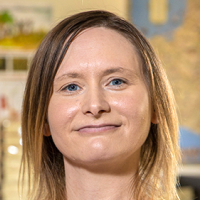Women Archaeologists Negatively Impacted by the Pandemic More Than Their Male Peers
Posted on Oct 13, 2021 | Comments 0
 A new study led by Julie Hoggarth, an associate professor of anthropology at Baylor University in Waco, Texas, surveyed a large group of professional archaeologists on their experiences of job loss; economic, workload, research and training impacts; and changes in personal responsibilities after the onset of the COVID-19 pandemic.
A new study led by Julie Hoggarth, an associate professor of anthropology at Baylor University in Waco, Texas, surveyed a large group of professional archaeologists on their experiences of job loss; economic, workload, research and training impacts; and changes in personal responsibilities after the onset of the COVID-19 pandemic.
Survey respondents represented a variety of archaeological areas, including cultural resource management, academia, museums, government agencies, and more. All populations reported effects on workload due to the pandemic, with increases in workload commonly being linked to the switch to digital platforms. Research opportunities were identified as being negatively affected as archaeologists struggled to travel for fieldwork. Archaeologists who teach reported an increase in the amount of time for teaching-related activities.
Of the respondents, women and early-career archeologists were most affected by job losses. Additionally, women and early-career archaeologists as well as historically underrepresented groups reported economic losses related to the pandemic. “We somewhat expected to find that women’s personal responsibilities had been increased, but we had no idea to what extent,” Dr. Hoggarth said. “The economic impacts also surprised us, as we weren’t sure what to expect in terms of job losses and economic losses. Those data really drove the point home that pre-existing structural inequalities were exacerbated by the pandemic.”
Dr. Hoggarth is a graduate of the University of California, San Diego, where she majored in anthropology. She earned a Ph.D. in anthropology at the University of Pittsburgh. Over the past several years, she has worked to compile archaeological and historic datasets to understand the effects of prehistoric and historic drought episodes on agricultural production and health for Maya populations.
The full study, “Impacts of the COVID-19 Pandemic on Women and Early Career Archaeologists,” was published on the website of the journal Heritage. It may be accessed here.
Filed Under: Research/Study








